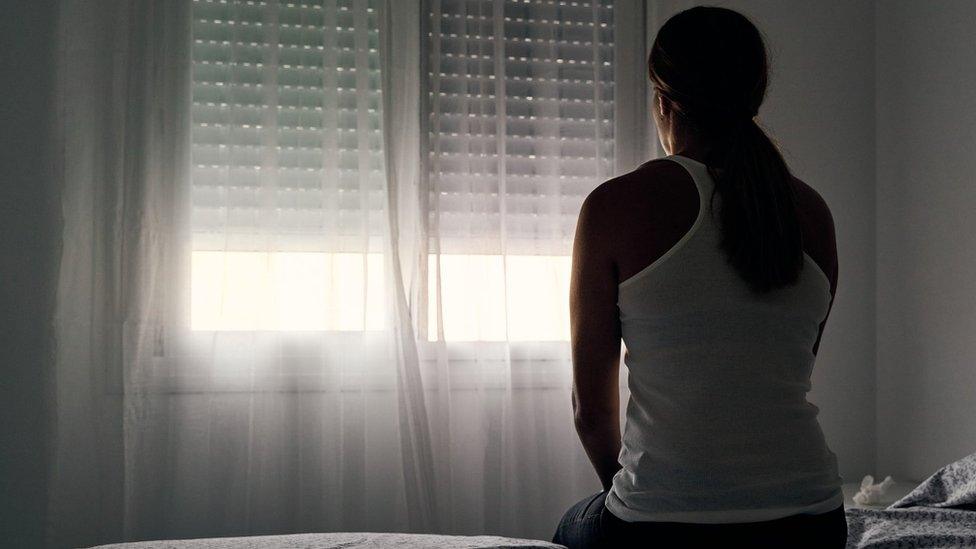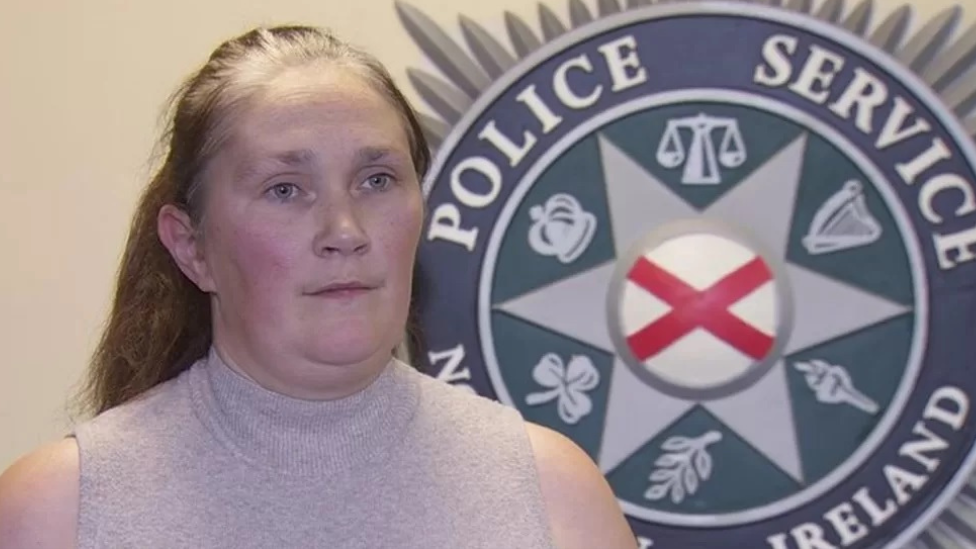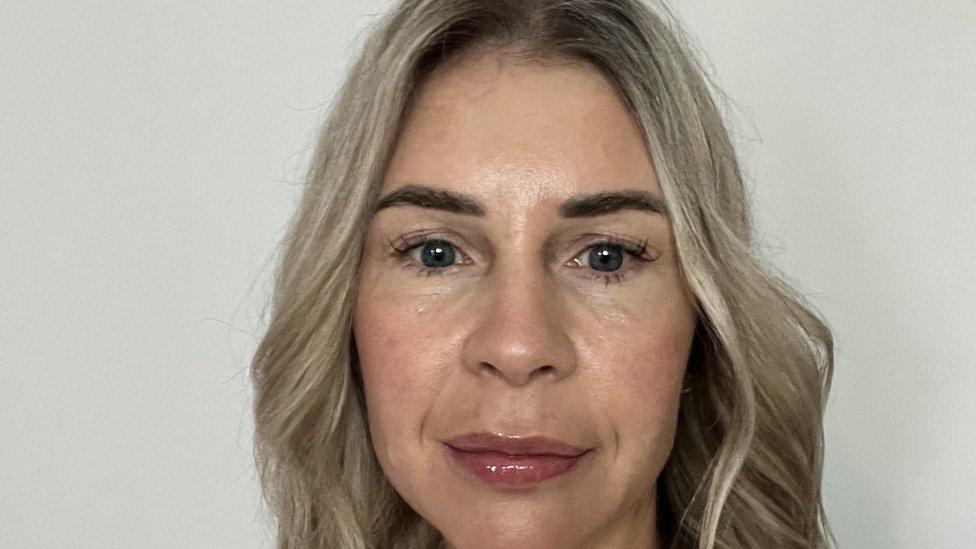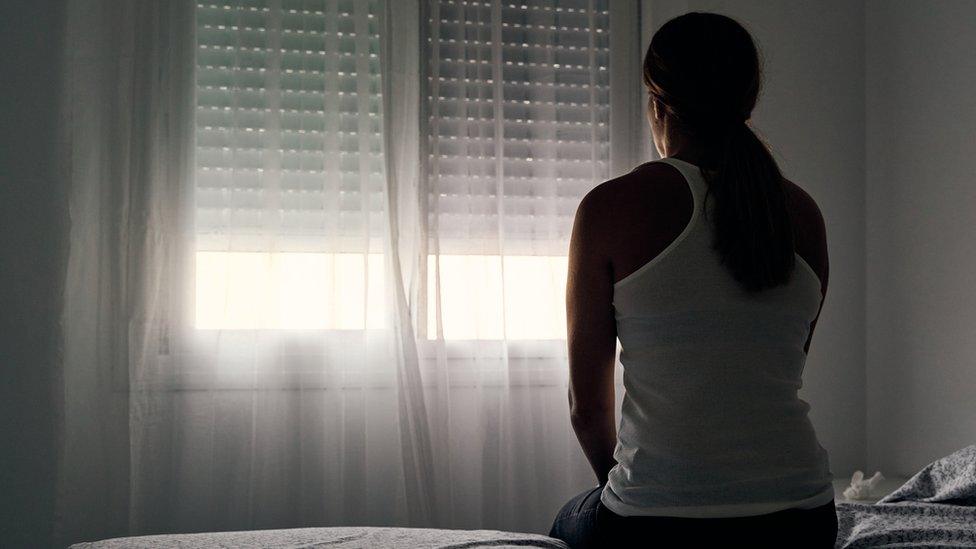Sex assault victim: 'I don't think I'll ever feel safe again'
- Published

A woman who was sexually assaulted and strangled by a stranger in her own home has told the BBC she does not think she will ever feel safe again.
The woman's attacker is serving time in prison thanks to her evidence.
The number of sexual offences reported in Northern Ireland in a 12-month period reached the highest level on record in May.
Sexual offences have been on an upwards trend since police data collection started in 1998.
The woman in this case spoke to BBC News NI on condition of anonymity.
This article contains details some readers may find distressing
"I remember him attacking me, sexually assaulting me, strangling me," she said.
"It's very difficult to remember it all clearly, I was just thinking 'get off, get off, get off'.
"All of it was terrible but with the strangulation I was just thinking: 'I'm never going to see anyone ever again'.
"I just fought and fought and fought until I got him off. He'd done a lot of damage, physically, sexually, mentally, I thought I was going to die.
"When he was gone I phoned the police, they got him very quickly."
The woman went through forensic medical examination in the immediate aftermath of the incident at the Rowan Centre, Northern Ireland's only sexual assault referral centre.
"Going to the Rowan Centre was very intimidating, photographs had to be taken, bruises had to be measured, it was horrific," she said.
"But I thought, I don't want him to ever do this to anyone, I knew I had to put myself through all of it."

Det Supt Fisher said it is important to secure evidence as quickly as possible
Securing evidence as quickly as possible in a case like this allowed a victim the time and space to consider if they want to take a case forward, Det Supt Lindsay Fisher, from the Police Service of Northern Ireland's public protection branch said.
"It's an opportunity to secure that timely evidence without having to go in to the fine grain detail a police investigation would need," she said.
"It allows that person to take control of a time when everything has gone out of control, control has been taken away from them, because that's what we're really focusing on that power and control.
"So that if that victim does want to come forward at a later time that's there, it's available, that will be that evidence that can be presented to court and we can hold and secure that."
The victim said recovery had been difficult.
"I remember immediately after I thought 'I have to have a bath' and I looked down at the bruising and damage and I could barely look at myself, I didn't want to look in the mirror or go outside," she said.
"I'm still very nervous, the police helped me put a lot of security measures in place, it's been very reassuring.
"It still doesn't make me feel completely safe. I don't think I'll ever feel safe again."
Non-fatal strangulation became a stand-alone offence in Northern Ireland under the Justice, Sexual Offences and Trafficking Victims Act 2022 in June.

Joanne Barnes from Nexus works with survivors of domestic and sexual violence
Working with Nexus, a charity which supports people affected by domestic and sexual violence, has helped the woman try to deal with some of the trauma.
Joanna Barnes, the CEO of the organisation said people were daunted by the prospect of coming forward.
"People think, 'will I be believed?' I'll have to explore all of these difficult issues again'," she said.
"What you can be assured of getting with Nexus is a trusted safe space to have those conversations, to help process what's gone on.
"Trying to heal the inner person who has experienced that trauma so that you can move forward with other aspects of your life."
If you have been affected by any of the issues discussed in this story you can find help and support at BBC Action Line
- Published26 June 2023

- Published20 May 2023

- Published17 July 2020
